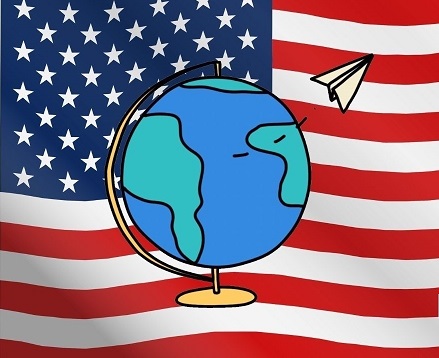
2021년 3월 11일
** 트럼프 전임 대통령의 직권 행정명령으로 2019년에 발효되고 2020년 2월 24일부터 적용되어온 공적부조 (Public Charge) 규정이 전면 폐지되었다. **
국토안보부 (US Department of Homeland Security)와 이민국 (USCIS)는 3월 11일 공적부조 이민자 제한정책 (Public Charge Ground of Inadmissibility) 을 전면 폐지한다고 발표했다.
이민국에 따르면, 3월9일부터는 영주권신청 (I-485)시 공적부조 양식 (I-944)와 증빙서류를 제출하지 않아도 되며, 공적부조와 관련하여 이미 추가서류요청서 (RFE)나 거절예고서 (NOID: Notice of Intent to Dany) 를 받은 경우에도 요청된 서류를 제출하지 않아도 됩니다. 이와함께 영주권신청서 Form I-485와 비이민 신분 청원서 및 신청서 즉, Form I-129, I-539, I-539A에 공적부조 관련 질문 조항에 대해서는 답을 하지 않아도 된다.
아울러 영주권신청 (I-485) 접수시 Form I-944를 제출하지 않아도 서류반환 (Rejection)을 하지 않는다.
[이민국 공지]
Public Charge
Alert: On Sept. 8, 2022, DHS announced a final rule that will implement the public charge ground of inadmissibility. The final rule will be effective on Dec. 23, 2022, and will apply to applications postmarked (or electronically submitted) on or after that date. Until the effective date of the final rule, USCIS will continue to apply the public charge ground of inadmissibility consistent with the 1999 Interim Field Guidance.
To learn more about how we are applying the public charge ground of inadmissibility, visit our Public Charge Resources page.
USCIS is no longer applying the August 2019 Public Charge Final Rule. As a consequence, among other changes, USCIS will apply the public charge inadmissibility statute consistent with the 1999 Interim Field Guidance. In other words, USCIS is not considering an applicant’s receipt of Medicaid (except for long-term institutionalization at the government’s expense), public housing, or Supplemental Nutrition Assistance Program (SNAP) benefits as part of the public charge inadmissibility determination.
To provide clarity and help answer questions, we've created a public charge resource page filled with facts, Q&A and useful links. Visit our resource page, to learn more.
Background
On Nov. 2, 2020, the U.S. District Court for the Northern District of Illinois vacated the Inadmissibility on Public Charge Grounds final rule (84 Fed. Reg. 41,292 (Aug. 14, 2019)), as amended by Inadmissibility on Public Charge Grounds; Correction, 84 Fed. Reg. 52,357 (Oct. 2, 2019) (Public Charge Final Rule) nationwide. That decision was stayed by the U.S. Court of Appeals for the Seventh Circuit.
On March 9, 2021, the Seventh Circuit lifted its stay and the U.S. District Court for the Northern District of Illinois’ order vacating the Public Charge Final Rule went into effect. When the vacatur went into effect, USCIS immediately stopped applying the Public Charge Final Rule to all pending applications and petitions that would have been subject to the rule. USCIS continues to apply the public charge inadmissibility statute, including consideration of the statutory minimum factors in the totality of the circumstances, in accordance with the 1999 Interim Field Guidance that was in place before the Public Charge Final Rule was implemented. In addition, USCIS will no longer apply the separate, but related, “public benefits condition” to applications or petitions for extension of nonimmigrant stay and change of nonimmigrant status.
Applicants and petitioners should not provide information or evidence related solely to the Public Charge Final Rule. That means that applicants for adjustment of status should not submit Form I-944, Declaration of Self Sufficiency, or any evidence or documentation required by Form I-944 when they file their Form I-485. Applicants and petitioners for extension of nonimmigrant stay and change of nonimmigrant status should not provide information related to the receipt of public benefits on Form I-129 (Part 6), Form I-129CW (Part 6), Form I-539 (Part 5), and Form I-539A (Part 3).
If an applicant or petitioner already provided information related solely to the Public Charge Final Rule, and USCIS adjudicates the application or petition on or after March 9, 2021, USCIS will not consider any information that relates solely to the Public Charge Final Rule, including, for example, information provided on Form I-944, evidence or documentation submitted with Form I-944, or information on the receipt of public benefits on Form I-129 (Part 6), Form I-129CW (Part 6), Form I-539 (Part 5), and Form I-539A (Part 3). Any other information received will be evaluated consistent with the statute, regulations, and policies in effect at the time of adjudication.
If you received a Request for Evidence (RFE) or Notice of Intent to Deny (NOID) requesting information that is solely required under the Public Charge Final Rule, including but not limited, to Form I-944, and your response is due on or after March 9, 2021, you do not need to provide that information. However, you do need to respond to the aspects of the RFE or NOID that otherwise pertain to the eligibility for the immigration benefit sought. If USCIS requires additional information or evidence to make a public charge inadmissibility determination under the statute and consistent with the 1999 Interim Field Guidance, we will issue another RFE or NOID.
USCIS published new form editions for affected forms. Starting April 19, 2021, we will only accept the 03/10/21 editions. Until then, you can also use the prior editions specified on each form webpage.
공적부조 (Public Charge Rule) 전면 폐지에 대한 국토안보부 (USDHS) 발표 (3/112021)
** 상담 요청을 하시면 케이스 진행 안내문 (비용 관련 내용 포함)을 보내드립니다.
스마트이주공사
#미국이민 #취업이민 #2순위 #3순위 #숙련직 #비숙련직#가족이민 #종교비자 #취업비자 #투자비자 #시민권자배우자영주권 #이민문호#LA이주공사
open.kakao.com
Smart Korean Consulting
풍부한 경험과 실력, 믿음과 신뢰의 결과, 고객을 위하는 마음
skcgo.com
'이민뉴스' 카테고리의 다른 글
| 취업이민 3순위 비숙련직 (EB-3 Other Workers) 이민문호 비상 (0) | 2022.12.04 |
|---|---|
| 드림법안, 드디어 시행되나? (Dream Act of 2021-바이든 Family Plan) (0) | 2022.12.04 |
| 주한미대사관 이민비자/비이민 비자발급 재개 (0) | 2022.12.04 |
| 2021 바이든 대통령 행정명령 (Executive Order) (0) | 2022.12.04 |
| 바이든 행정부 이민개혁안 (The US Citizenship Act of 2021) (0) | 2022.12.04 |


